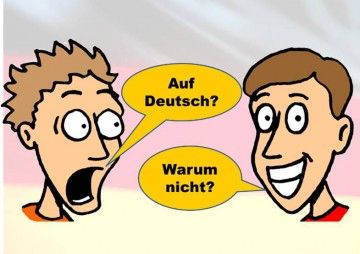
1. bekommen – to get, to receive
werden – to become
Ich bekomme immer viele Geschenke zu meinem Geburtstag. – I always get many presents for my birthday.
Ich will Fußballspieler werden. – I want to become a football player.
2. spenden – to donate
ausgeben (Geld) – to spend (money)
verbringen (Zeit) – to spend (time)
Sie spendet jedes Jahr ihre Kleidung. – She donates her clothing every year.
Ich will nicht so viel Geld für Kleidung ausgeben. – I don’t want to spend so much money on clothing.
Ich verbringe nicht sehr viel Zeit zu Hause. – I don’t spend a lot of time at home.
3. will (from wollen) – want
Ich will – I want
Ich werde – I will
Ich will glücklich sein. – I want to be happy.
Meine Tochter will nicht in die Schule gehen. – My daughter doesn’t want to go to school.
Ich werde dich bald besuchen und wir werden zusammen grillen. – I will visit you soon and we will have a barbecue together.
4. der Chef /die Chefin – boss
der Koch/die Köchin – chef, cook
also
der Küchenchef/die Küchenchefin, der Chefkoch/die Chefköchin – chef
Unser Chef ist sehr nett, ich arbeite gerne mit ihm. – Our boss is very nice, I like working with him.
Dieser Küchenchef ist sehr berühmt. – This chef is very famous.
Ihr Mann ist Koch von Beruf. – Her husband is cook.
5. das Gift – poison
das Geschenk – gift
Die Polizei hat Spuren von Gift gefunden. – The police found traces of poison.
Hast du viele Geschenke zum Geburtstag bekommen? – Did you get many gifts for birthday?
6. die Rente – pension
die Miete – rent
Wie hoch ist die Rente in Deutschland? – How high is the pension in Germany?
Seine Rente ist sehr niedrig. – His pension is very low.
Die Miete für unsere Wohnung is ziemlich hoch. – The rent for our apartment is rather high.
7. also – so, therefore
auch – also
Du kannst mir also nicht helfen? – So, you can’t help me?
Also, ich kann das auch selbst machen. – So, I can also do it by myself.
Ich will auch nach Berlin fahren. – I also want to go to Berlin.
8. die Hochschule – college, university
If you translate this word literally, it sounds like “high school”. But because of the difference in the school system, what is called high school in other countries can be different schools in Germany, for example, Gymnasium, Realschule, Hauptschule.
Ich habe an der Hochschule Deutsch studiert. – I studied German at college.
9. wer – who
wo – where
Wer ist dieser Mann? – Who is this man?
Ich weiß nicht, wer er ist. – I don’t know who he is.
Wo wohnst du? – Where do you live?
10. die Dose – can, tin
die Dosis – dose
Er hat eine Dose Bier gekauft. – He bought a can of beer.
Magst du Gurken aus der Dose? – Do you like cucumbers from tin?
Eine tägliche Dosis von Zucker sollte nicht überschritten werden. – A daily dose of sugar should be not exceeded.
11. fast – almost
schnell – fast
Ich bin fast 30 Jahre alt. – I am almost 30 years old.
Sie übt Yoga fast jeden Tag. – She practices yoga almost every day.
Er spricht zu schnell. – He speaks too fast.
12. die Note(-n) – mark(s), grade(s)
die Notiz(-en) – notes
Meine Kinder lernen viel und haben gute Noten. – My children learn a lot and have good grades.
Ich habe die Prüfung mit einer guten Note bestanden. – I passed the exam with a good mark.
Ich muss Notizen machen, sonst vergesse ich alles. – I have to take notes, otherwise, I will forget everything.
13. die Kaution – deposit
die Vorsicht – caution
Hast du die Kaution zurückbekommen? – Did you get the deposit back?
Ja, aber der Vermieter hat einen Teil von Kaution behalten. – Yes, but the landlord kept a part of the deposit.
14. dick – thick, fat
Meine Katze ist zu dick.– My cat is too fat.
Fast Food macht uns dick. – Fast food makes us fat.
15. die Art – kind, sort, type, manner
die Kunst – art
Ich lese verschiedene Arten von Büchern. – I read different kinds of books.
Welche Art von Musik magst du? – What type of music do you like?
Interessierst du dich für Kunst? – Are you interested in art?
